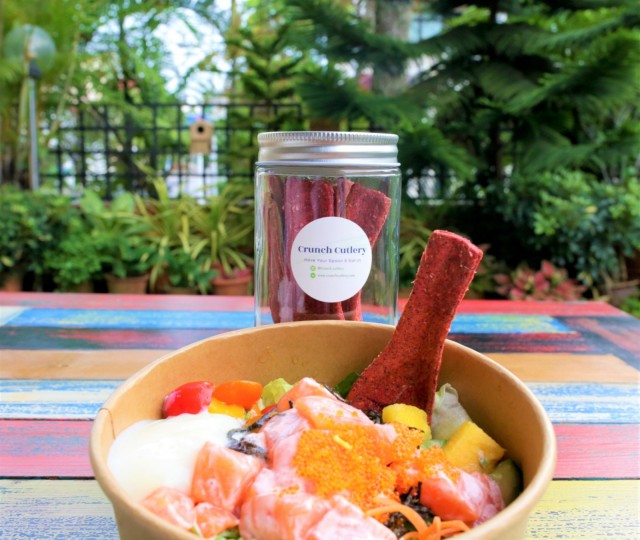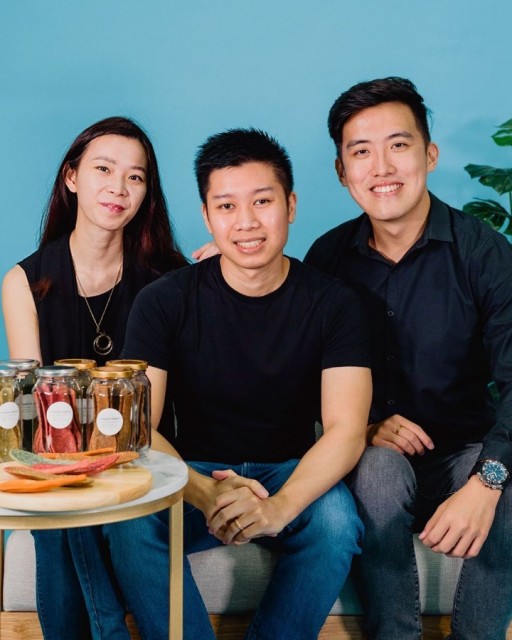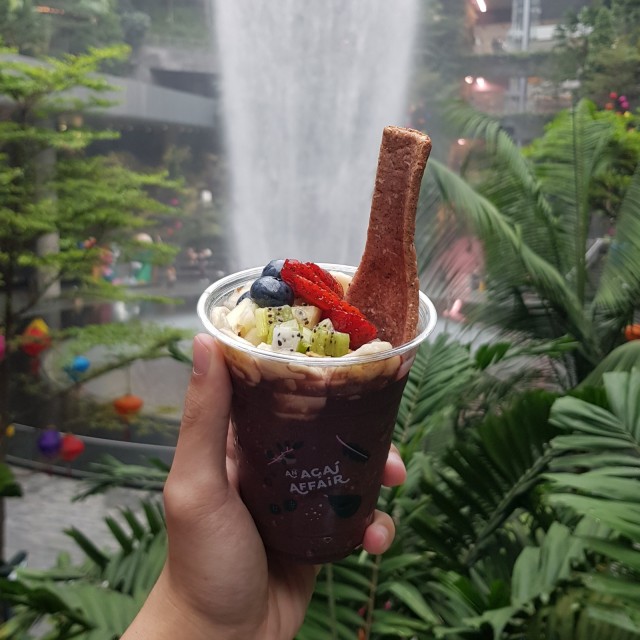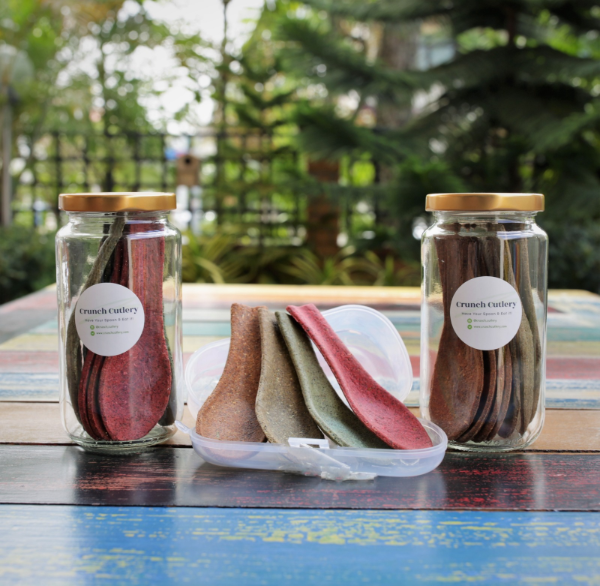
Don’t just eat with a spoon. Eat the spoon — That’s a call from Crunch Cutlery, a homegrown startup that aims to reduce plastic waste while improving urban nutrition with its collection of edible cutlery.
Made of flour, nutritional mix, olive oil, coconut oil, baking soda, food-grade colouring and emulcos, the edible spoon is essentially a handmade biscuit that can be consumed as part of the meal. The spoons also contain superfoods such as organic chia seeds, desiccated coconut and golden flax seeds, according to Crunch Cutlery’s website.
The brand was founded in late 2020 by cooking enthusiast Anna Lam, sustainability advocate Sean Neo and business consultant Ezra Chan. The trio have left their day jobs to run Crunchy Cutlery. They hope more people will opt for their nutrient-packed edible spoons over single-use plastic spoons in time to come.

Commenting on the demand for Crunch Cutlery’s products so far, Mr Chan said his team has been “quite blessed” thanks to customers who are willing to pay more for sustainable products.
He added that Crunch Cutlery has been able to achieve positive gross margins. They are investing their profits into the company’s further research and development.
The 29-year-old said: “I feel that Singaporeans do have the goodness within them to actually pay a premium just so that they can save a bit of plastic.”

While Crunch Cutlery can’t single-handedly root out plastic waste, Mr Chan said he believes his team can “make a dent” by providing an “alternative option” to eco-conscious customers.
For now, customers can find their products online and at physical stores such as An Acai Affair and UglyFood. Each set of eight edible spoons is priced from $11 to $13, depending on their flavours including Blue Pea Lychee, Pink Strawberry, Tangy Tomato and Green Tea.

“Our price is easily 10 to 20 times more than that of a plastic spoon, which is why we have put in a lot of thought into not only making it sustainable but nutritious as well,” said Mr Chan.
Ms Ashley Guo Xiao Zhen, 21, paid $1.50 more for a Crunch Cutlery spoon to go with her Acai bowl. Although eating with the edible spoon is a “unique experience”, she said she broke the spoon fairly quickly.
“I won’t specially go [to] buy the spoon to use at home but I don’t mind getting one with my Acai,” said Ms Guo.
On the other hand, Yu Jia Lin, 19, a sustainability advocate, said she wouldn’t buy the edible spoons as she doesn’t “see it as necessary”.
The Raffles Institution graduate prefers using reusable cutlery. She also brings her own reusable containers for takeaway meals and reusable bags for grocery shopping.
She said there’s too much emphasis on “constant renewing” in our lifestyles and that people should move away from the “buy and throw systems”.
Likewise, Ms Nanthini Ramanadan, 21, said she wouldn’t buy edible spoons since she can’t reuse them.
“[Since] the spoons only last for three weeks I would not purchase them,” said the Singaporean student who’s studying at the University of Queensland, Australia. Crunch Cutlery recommends that their spoons be consumed within three weeks of purchase.
But to do her part for sustainability, Ms Ramanadan will continue to refrain from “taking plastic utensils when ordering takeaways”.
Jia Lin added that she wouldn’t mind paying more for some sustainably-sourced products if they are useful.
“Some products are really transparent about their origins and they support indigenous or local communities, which leads to sourcing [for] materials becoming more expensive,” she said.
“In this case, if the product is really useful, I would be fine with buying it.”
Edited By: Adiel Rusyaidi Ruslani and Charlotte Chang
Proofread By: Teo Yin Yan and Tricia Kuan
